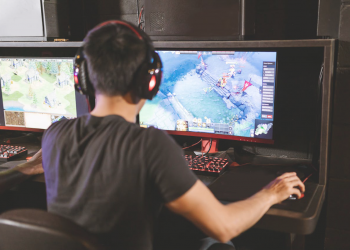It’s a high school movie cliche – teens moaning about participating in school sports.
But it’s a cliche for a reason. When teens hit their final years of schooling and it’s no longer compulsory to play school sport most give it up without a second thought, preferring to devote more time to socialising, studying or sleeping in on Saturdays instead.
The major problem with school sport is that it’s seen as getting in the way of other more important things, when in fact, it might actually be the most important thing of them all. But school students with their limited life experience often don’t have a true understanding of this.
High school students in NSW and Queensland up until year 10 have to do two hours of planned physical activity each week which includes PE and sport, while in Victoria it’s 200 minutes. After year 10, however, students can give sport the boot.
This however isn’t always the case in private schools which often enforce mandatory participation in at least one sport. At Sydney’s Scots College, for example, “sport is compulsory for every boy with the expectation that they take part in one winter sport, one summer sport and College Athletics and Swimming if selected. This is an important part of the life of a Scots boy and something that we feel strongly should be a part of all boys’ lives.”
While some may disagree with compulsory school sport and argue that the development of a sense of autonomy is critical for teens in their final years of schooling on the cusp of adulthood, there are some pretty strong cases supporting making school sport compulsory right up until year 12 due to its positive impact on physical health and mental wellbeing, both short and long term.
For example, a study of 9700 students aged 14 to 18 conducted by researchers from Pennsylvania State University and the University of South Carolina in the USA quoted in this EISAU article suggests that involvement in sport improves both concentration levels and academic achievement.
The study found adolescents who belong to school sports clubs, rather than drama or debating societies, are more likely to complete their education and go to university.
School sport can also help young people realise you don’t have to be good at something to enjoy it, highlighting the positive intrinsic benefits of simply improving their skills and achieving personal bests rather than just winning. The lesson – life isn’t all about winning.
And for those who are good at sport or love to win? It can help them develop resilience and coping strategies to deal with failure as well as how to navigate competitive situations in everyday life, all of which sport invariably throws up.
But that’s not all.
Quitting school sport in the final years of schooling also makes young people less likely to play sport as an adult which can lead to long-term physical and mental health impacts. But getting into the habit of playing sport while young, and sticking with it, helps turn fitness into a lifelong habit.
And then on top of all that there’s the social benefit sport brings which can be especially important after young people leave school and want to make new friends.
So, better concentration and academic performance, more likely to finish school and go to uni, greater resilience, better physical health, improved mental wellbeing long-term and helping make new mates and combat the impacts of loneliness?
As cliche as it sounds it means, in the right environment at least, everyone’s a winner playing sport.
But how many teenagers realise this? How many can sit back and see the bigger benefits of sport beyond it getting in the way of their friends and studies?
Trying to explain that to a teenager who wants their Saturday mornings back mightn’t be so easy though. But if more school students consider these points then maybe a few more will play school sport until they graduate and beyond into adult life even when no teachers are forcing them to.






